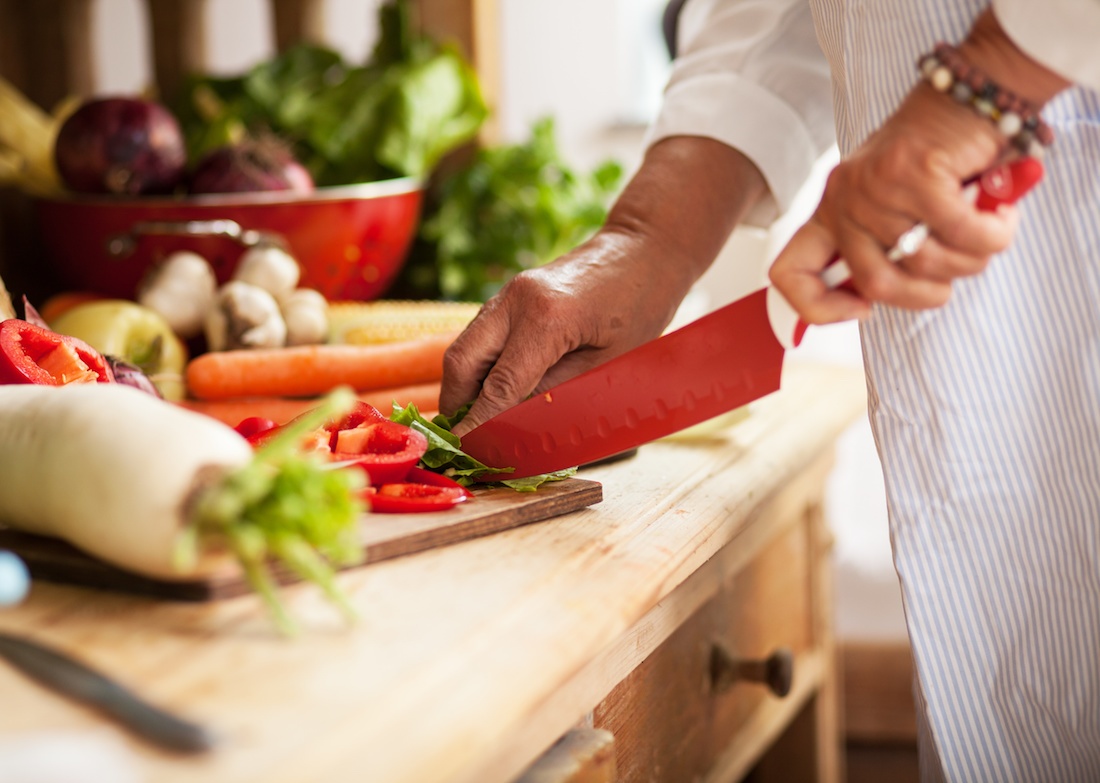
According to the American Diabetes Association, one in four seniors – approximately 12 million people age 65 and older – have diagnosed or undiagnosed diabetes in the United States. Maintaining a balanced diet can be difficult when glucose levels must remain steady. But what if we told you, you can be safe, healthy, and indulge in a piece of chocolate cake from time to time?
Mark, Director of Culinary Operations for The Goodman Group, provides tips on how to stay healthy when you have diabetes.
A Plant-Based Diet is Best
Mark says the best thing for people who are diagnosed or pre-diabetic, and who don't want to count calories or eliminate gluten altogether, is to start with a plant-based diet. This does not mean eating more fruits, rather, it entails eating more fresh vegetables and a full-range of salad items.
Adding lean meat is also nutritious for those with diabetes. However, Mark encourages 75% of their diet to be plant-based.
Snacks Help
"The goal is to keep the glucose level consistent," he says. "We don't want people's levels to drop or spike so that we have to give them sugar or insulin."
In addition to your three meals a day, having a snack in between meals can help keep the glucose levels balanced. At some communities managed by The Goodman Group, we offers our residents snacks at 10 a.m., 2 and 8 p.m. Great snack ideas for diabetics can include hummus and pita bread, snap peas and dressing or cottage cheese with peach slices.
"The lower the carbs, the better," Mark says. "You're not looking for snacks to fill you as much as you're looking for snacks that keep your glucose level steady."
Avoid Processed Sugars and Too Many Carbohydrates
Mark also recommends staying away from processed sugars. When shopping for food, be cautious of “hidden ingredients” and always check calories and carbohydrates on the label. Avoid anything made with corn syrup, too.
Essentially, you're looking for low cholesterol, low sodium, and low fat.
Mark says after retiring, reinventing your diet may be a good idea. He recommends taking cooking classes and getting creative with healthy options for your meals.
Cooking Techniques Matter
Not only is the food we put in our bodies important, but the way in which we prepare that food is also significant.
Opt to grill or steam foods versus frying, Mark says. When foods are fried, they absorb a lot of fat and, in turn, increase cholesterol. If you're thinking of frying your vegetables, don't. They lose much of their moisture and vitamins perish when prepared this way.
Grilled food, on the other hand, often has reduced fat because of how it is cooked. The lower fat content helps lower cholesterol, too.
Most Foods are Fine in Moderation
Mark says it's not necessarily about omitting certain foods but enjoying them in moderation.
"What happens if all of a sudden we say, 'You can’t have this, this or this,'" he says. "Their families will bring stuff in. What we try to do is say we’ll still have chocolate fudge cake but we’ll do it once a month and just have half a slice."
That's right, you can have your cake and eat it, too!



